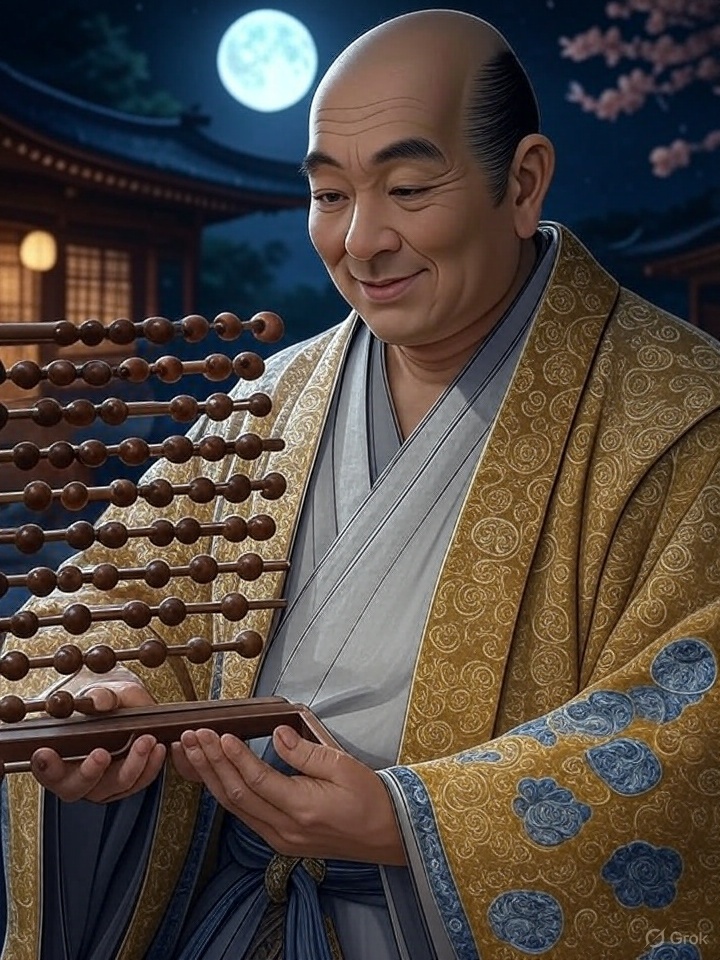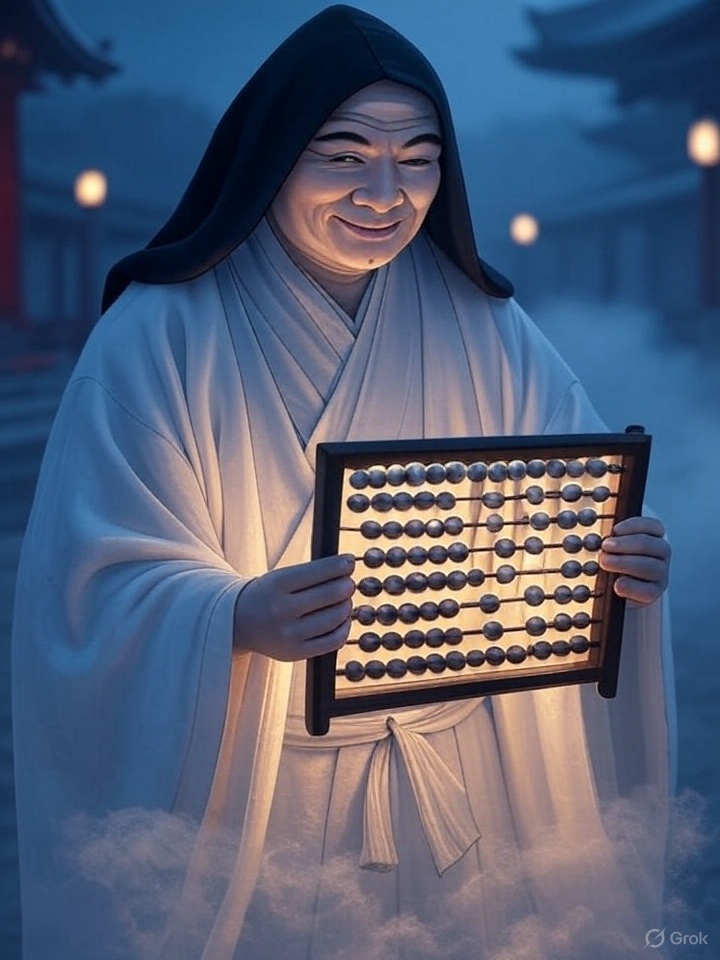Name Meaning
Overview
Sorobanbōzu (算盤坊主) combines the words for “abacus” and “Buddhist monk,” suggesting a ghostly figure involved with counting or accounting.
- Soroban (算盤) = abacus
- Bōzu (坊主) = monk or priest
Origin
- Appears in Edo-period ghost tales and yokai scrolls.
- Often found in haunted buildings, especially former temples or schools.
- Sometimes interpreted as a spirit bound to old merchant practices or bookkeeping duties.
Appearance
- Looks like a bald monk wearing simple robes.
- Holds a large soroban (abacus) in hand, often heard clicking the beads.
- May appear partially transparent or ghostly under moonlight.
Behavior & Myths
- Known to make eerie clicking sounds as it calculates invisible numbers at night.
- Some say it tallies the moral debts of humans, keeping spiritual balance.
- Others say it’s simply a harmless phantom with obsessive habits.
Symbolism
- Symbolizes accountability, karma, or the obsessive nature of greed.
- May reflect spiritual debts or business regrets lingering after death.
- Also a warning about materialism or overwork.

